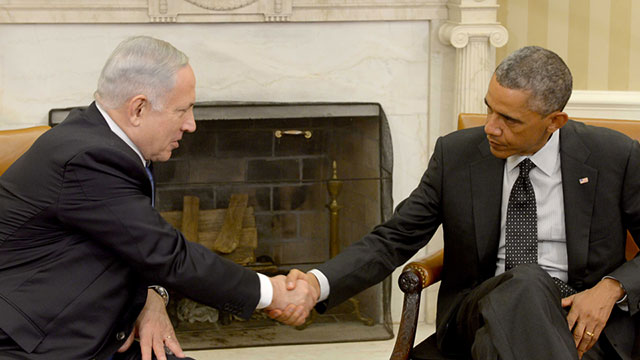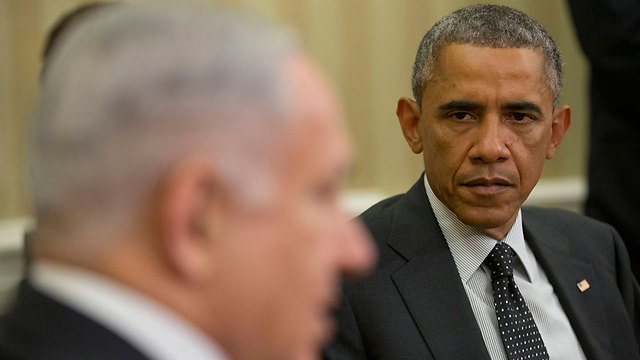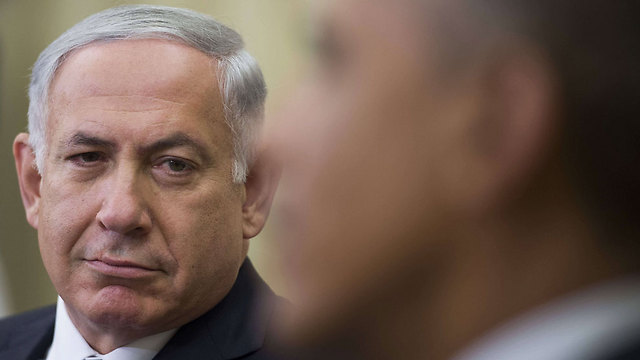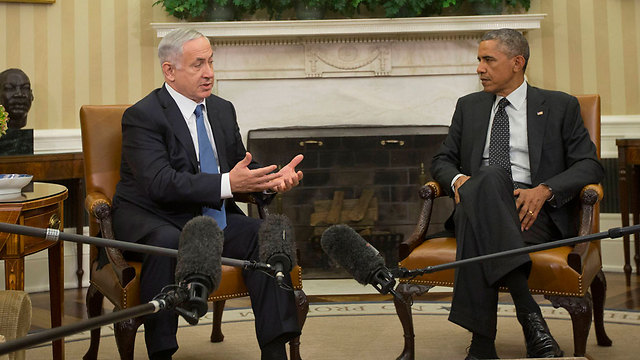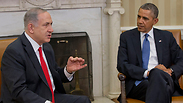
WASHINGTON – Prime Minister Benjamin Netanyahu on Wednesday assured US President Barack Obama of his dedication to the peace process with the Palestinians, saying that he was committed to finding a peace that meets Israel's security needs.
There is a need to "think outside the box" on how to proceed, the prime minister said at the start of his talks with Obama at the White House. Obama, meanwhile, said that the status quo between Israel and the Palestinians was not sustainable.
The leaders from both sides must "find ways to change the status quo so that both Israel citizens are safe in their own homes, and schoolchildren in their schools, from the possibility of rocket fire but also that we don't have the tragedy of Palestinian children being killed as well," Obama said.
Israel, the president conceded, is in a "turbulent neighborhood", while Netanyahu said there were "enormous challenges" facing the US and Israel in the region. The prime minister said nations should "look outside the box" on a solution that creates a Palestinian state, including bringing in other Arab states.
Netanyahu also expressed the hope the president would make sure that any final nuclear deal between Iran and world powers does not allow Tehran to stand at the "threshold" of being able to develop nuclear weapons.
He said preventing Iran from acquiring an atomic bomb was a critical goal that he and Obama shared but also urged the president to exercise "your leadership" in Iran nuclear talks to prevent Tehran from even having the capacity to develop such a weapon.
"Iran seeks a deal that would lift the tough sanctions that you worked so hard to put in place and leave it as a threshold nuclear power," Netanyahu told Obama. "And I firmly hope under your leadership that would not happen."
The 75-minute meeting comes two days after Netanyahu's fiery speech to the United Nations General Assembly earned the prime minister a mild rebuke from the American administration, which responded to his comparison between Hamas and the Islamic State by saying that it was not ready to begin an assault on Hamas.
"We don’t believe that Prime Minister Netanyahu or anyone else from Israel is suggesting that the United States launch a military campaign against Hamas," said State Department spokeswoman Jen Psaki after Netanyahu's speech.
In his speech Monday, Netanyahu called on the six world powers negotiating with Iran over its nuclear program to demand the full dismantlement of Tehran's centrifuges.
Psaki, meanwhile, said in her post-speech comments Monday that while Washington shared Israel's concerns about Iran becoming a state on the nuclear threshold, she did not share Netanyahu's view that Iran was a greater threat than the Islamic State.
Netanyahu wants to convince Obama that a nuclear Iran would be a bigger threat to world peace and security than the threat posed by the Islamic State, which is mostly regional. Netanyahu is also worried that the world powers would be lenient with Tehran during the nuclear negotiations in order to persuade it to joint the fight against the Islamic State.
According to White House sources, Obama was expected to tell Netanyahu the two issues were unrelated, and that while the United States had an obligation to prevent Iran from obtaining a nuclear weapon, it was also invested in ending the threat posed by the Islamic State.














